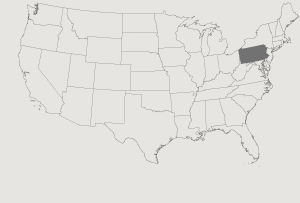Culture African American


- African American
- Afro-Cuban
- Alaska Native
- Anglo
- Apache
- Armenian
- Asian
- Basque
- Brazilian
- Cajun
- Cambodian
- Chinese
- Chitimacha
- Cochito Pueblo
- Comanche
- Creole
- Croatian
- Crucian
- Czech
- Dakotah-Hidatsa
- Danish
- Ethiopian
- Filipino
- Finnish
- French
- German
- Ghanaian
- Greek
- Guinean
- Gypsy
- Haida
- Haitian
- Hispanic
- Hmong
- Hocak
- Hunkpapa Sioux
- Hupa-Yurok
- Inupiaq
- Iranian
- Iraqi
- Irish
- Isleño
- Italian
- Japanese
- Jewish
- Kashia Pomo
- Kiowa
- Klickitat
- Korean
- Lakota Sioux
- Laotian
- Lebanese
- Lummi
- Menominee / Potowatomi
- Mesquakie
- Mexican
- Mohawk
- Native American
- Native Hawaiian
- Navajo
- Nez Perce
- North Indian
- Norwegian
- Odawa
- Ojibwe
- Okinawan
- Omaha
- Oneida
- Osage
- Passamaquoddy
- Peruvian
- Polish
- Pontic
- Puerto Rican
- Pyramid Lake Paiute
- Sac and Fox/Pawnee
- Salish
- Santa Clara Pueblo
- Scottish
- Serbian
- Serbo-Croatian
- Shoshone
- Skagit
- Skokomish
- Slovak American
- Slovenian
- South Indian
- Swedish
- Tewa
- Tibetan
- Tidewater
- Tlingit
- Tolowa
- Trinidadian
- Ukrainian
- Vietnamese
- Wasco
- Western Mono
- Yakama-Coleville
- Yup'ik
Artist Horace "Spoons" Williams


- Alphonse "Bois Sec" Ardoin
- Howard Armstrong
- Edward Babb
- Etta Baker
- Earl Barthé
- Mozell Benson
- Laverne Brackens
- Charles Brown
- Chuck Brown
- Shirley Caesar
- Charles "Chuck" T. Campbell
- Inez Catalon
- John Cephas
- Wilson "Boozoo" Chavis
- Clifton Chenier
- Elizabeth Cotten
- Dixie Hummingbirds
- Bo Dollis
- David "Honeyboy" Edwards
- Nora Ezell
- Fairfield Four
- Canray Fontenot
- Clarence Fountain and the Blind Boys
- Roland L. Freeman
- James "Jimmy Slyde" Godbolt
- Henry Gray
- "Queen" Ida Guillory
- John Dee Holeman
- John Lee Hooker
- Janie Hunter
- John Jackson
- Mary Jackson
- Claude Joseph Johnson
- Bessie Jones
- Riley "B.B." King
- Albert "Sunnyland Slim" Luandrew
- Mary Jane Manigault
- Frankie Manning
- Brownie McGhee
- McIntosh County Shouters
- Amma D. McKen
- John Mealing and Cornelius Wright, Jr.
- Norma Miller
- Allison "Tootie" Montana
- Alexander H. Moore, Sr.
- Jack Owens
- Joe Willie "Pinetop" Perkins
- Elijah Pierce
- Hystercine Rankin
- LaVaughn E. Robinson
- Philip Simmons
- Howard "Sandman" Sims
- Willie Mae Ford Smith
- Mavis Staples
- Roebuck "Pops" Staples
- The Birmingham Sunlights
- Koko Taylor
- Sanders "Sonny" Terry
- Joe Thompson
- Lucinda Toomer
- Henry Townsend
- Treme Brass Band
- Othar Turner
- Albertina Walker
- Gussie Wells
- Michael White
- Arbie Williams
- Claude "Fiddler" Wiliams
- Dewey Williams
- Horace "Spoons" Williams
- Warner Williams
- Elder Roma Wilson
- The Paschall Brothers
- Carol Fran
- The Holmes Brothers
- Carolyn Mazloomi
- Singing and Praying Bands of Maryland and Delaware
- Drink Small
- Mary Lee Bendolph, Lucy Mingo and Loretta Pettway










